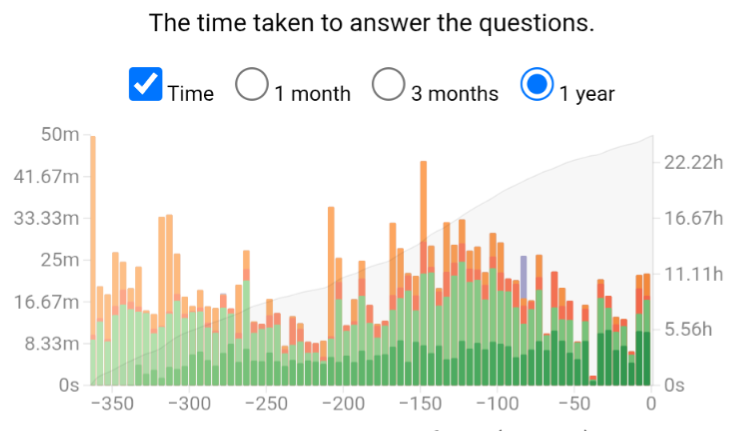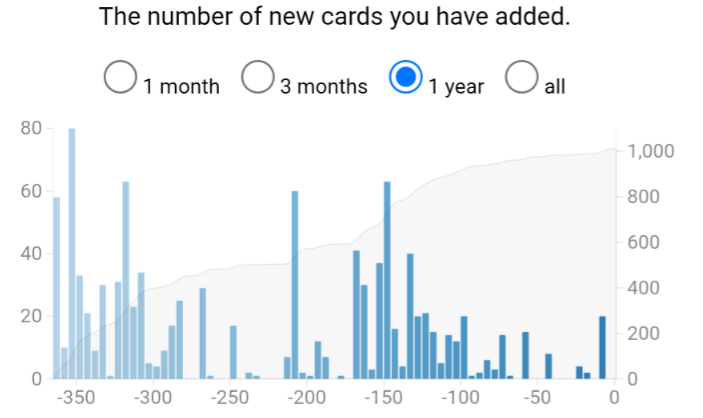I am naturally drawn to new topics and often spend weeks diving into them. But I’d forget most of it just a few weeks later. I wondered if spaced repetition would help me retain what I’d learned. So, over the past 365 days, I’ve kept a daily routine to study flashcards using Anki.
The topics
Over the year, I created and reviewed around 1,500 cards, spanning a range of topics:
- ~300 images for my own PAO system
- ~250 words (pronunciation or meaning)
- ~75 kayaking techniques
- ~75 items about genomics
- ~50 cards related to semiconductors (hint)
- ~50 ideas from economics and finance (hint)
- ~50 git concepts (hint: git database, git merge)
- ~650 other for a variety of things
I didn’t plan or anticipate any of the cards. I created them organically based on the things I was exploring at the time.
For example, I created the cards related to semiconductors while I was reading Chip War. Some cards are the result of fact-checking parts of the book, others expand on something the book didn’t cover but I was curious about. I have a card to remember that Gordon Moore was head of R&D at Fairchild Semiconductors when he coined the law (it’s in the book), and another to explain what happens in the depletion layer of a P-N junction (not in the book).
The time
I spent a total of ~24h during this period. Four minutes per day. I’m surprised that it only took 24h for me to learn 1,500 items. Imagine studying something during one minute and still remembering it a year later.

During 2024 I was pretty consistent, but in March and April of this year I started to miss more days of practice. It was due to a mix of factors. Life got intense, and I didn’t add many new cards to the system. It felt like a chore to review old material. Without new content to engage with, I was less compelled to do my reviews.



The cards
There are different ways to create your cards and prompt repetitions. You could do it with plain paper and a few boxes. I used Anki, an app available on desktop and mobile. It provides the mechanics for spaced repetition, so I only have to create and review cards when it asks me to.
I keep my Anki setup simple. It has plugins but I haven’t installed any. Nor I have adjusted the algorithm or configuration. There are also pre-made sets of cards you can share and download, I suppose they are valuable if you’re studying for a curriculum. It supports enough card types to suit most use cases (reversed questions and answers, image occlusion, cloze deletion), though I wish some cards could pull in dynamic content (auto-generated data).
The mechanics of creating a card are easy, but digesting something into a set of cards takes time and practice. Formulating knowledge or learning to learn is messy territory. I’ve found SuperMemo’s 20 rules of formulating knowledge actionable, and I review Claude Shannon’s Creative Thinking (PDF) from time to time for inspiration.
Coda
For the most part, I still remember all the 1,500 cards I’ve created. Occasionally, I come across one I struggle with, so I rework it — rephrasing, splitting, or removing it if it feels dull or unimportant.
The effort-to-impact ratio provided by spaced repetition has impressed me — I wish I’d known about it back in school. I want to keep learning for life, to stay curious, keep my mind sharp, and my spirit young. There are no grades anymore, but there’s still plenty to learn.
Leave a Reply